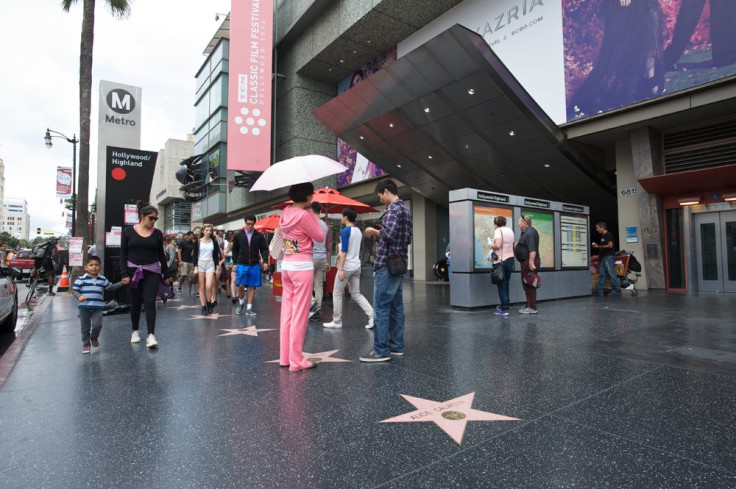Los Angeles Metro Gets Boost From Feds, But Future Of City’s Subway Expansion Still Uncertain

The federal government's announcement this week that it would bankroll $2.1 billion to help fund an extension of a Los Angeles subway line raised the hopes of many Angelenos. But it also brought up questions about whether the grant was enough to finish the long-delayed project and whether it would even attract enough riders to justify the cost.
“In Los Angeles, everything revolves around traffic,” Los Angeles County Supervisor Zev Yaroslavsky said during a conference Wednesday in Washington, D.C. “Everything we do is determined by how long it will take to get from point A to point B. And if it takes too long, we don’t bother going.”
Yaroslavsky and several other lawmakers, including senators Barbara Boxer and Dianne Feinstein and Los Angeles Mayor Eric Garcetti, attended a news conference in D.C. to announce their support for the federal funding of the city’s Purple Line, which currently runs 6.4 miles from Union Station west to Wilshire and Western, a project whose legal and logistical snags have hampered progress.
The $2.1 billion from the U.S. Department of Transportation includes a $1.2 billion grant -- the largest single federal grant ever received in Los Angeles -- and a $821 million low-interest loan.
The project is the first of a three-phase extension of Purple Line, which runs along Wilshire through Koreatown.
The first phase, slated to be completed in 2023, would add nearly four miles of track and three new stations and would bring the Purple Line farther west to La Cienega Boulevard. The goal is to eventually link downtown L.A. with the beach. Officials call the project, whose total cost is estimated at $5.3 billion, the “Subway to the Sea.”
The total cost of the first phase of expansion is $2.8 billion. Metro will have to make up the difference with tax revenue from Measure R, a sales tax increase approved by voters in 2008 that would fund a projected $40 billion in transportation upgrades across the county.
“The continued expansion of Los Angeles’ public transportation system is vitally important to millions of area residents who need reliable, affordable access to jobs, education, and other ladders of opportunity that this region has to offer,” U.S Transportation Secretary Anthony Foxx announced Wednesday. “We need Congress to pass a long-term transportation bill so we can continue to invest in more good projects like this one that help major cities like Los Angeles plan a sustainable future where hard-working families can fully participate in its growth and success.”
But the expansion isn’t without its cynics. Several opponents of the project, including Beverly Hills Unified School District, have filed lawsuits with the city over concerns about the subway route.
The school district argues that tunnel drilling underneath Beverly Hills High School, which lies directly above the proposed route, could dangerously disturb capped oil wells below the school.
"The problem is that the school doesn't have any place to go," attorney Clarine Nardi Riddle, who represents the school district, told Associated Press. "This is taking a huge risk with the property."
Proponents of the expansion say it would create 25,000 and would carry 30,000 passengers a day, but there are those who have said before that Los Angeles’ growing public transit network hasn’t delivered the results officials intended.
“They have been pushing rail expansion for decades now and it has not had much of an impact in terms of increasing transit ridership,” Tom Rubin, a mass transit consultant based in Oakland, California, told Second Avenue Sagas in 2010. “The big problem is that these are very, very expensive, and we wind up spending so much money on building these rail lines that there is not enough to operate bus service. So we wind up cutting back on bus operations and then raising fares, which drives the riders away.”
Compared to New York City’s long-anticipated Second Avenue subway construction, Los Angeles’ Purple line extension comes with a more affordable price tag. Phase one of the Second Avenue project, consisting of two miles of tunnel and three additional stops along the Upper East Side, will cost $4.45 billion. The total cost of the 8.5-mile line is projected to exceed $17 billion.
© Copyright IBTimes 2024. All rights reserved.












